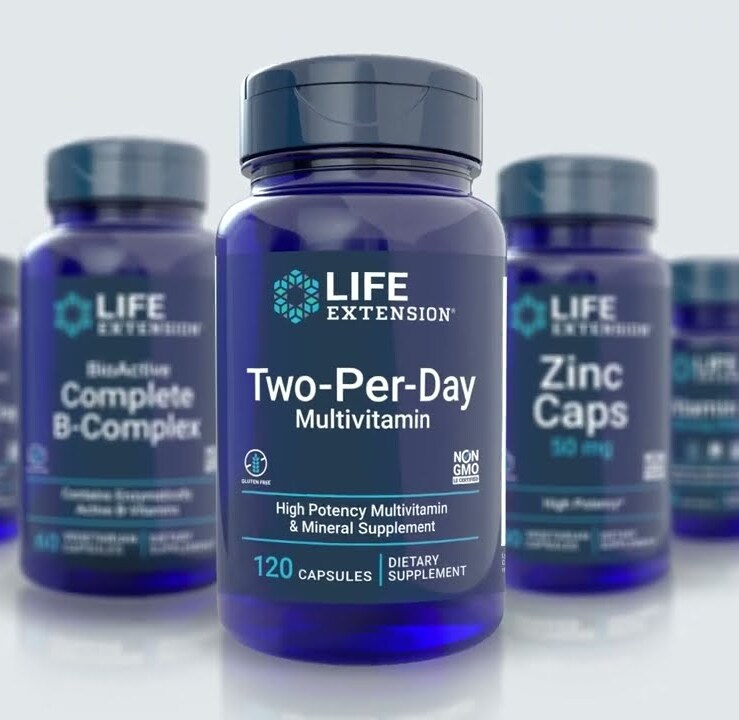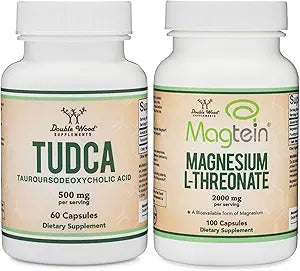Magnesium L-Threonate: 5 Health Benefits, Side Effects and more

Related products
Magnesium Threonate – What is it?
A mineral salt called magnesium threonate is made up of magnesium bonded to the amino acid L-chronic acid. It is often made from maize and marketed as a nutritional addition. Because of its special capacity to pass across the blood-brain barrier in people, magnesium L-threonate raises the amount of magnesium present in the brain. For this reason, the supplement helps to improve brain function and lessen the symptoms of despair and anxiety.

In the brain, magnesium threonate binds to neuronal receptors that encourage deeper relaxation, therefore inhibiting the activation of certain neurotransmitters. Furthermore, the supplement assists in controlling the nervous system and reduces anxiety by preventing the release of cortisol and other stress chemicals.
According to some studies, magnesium threonate improves learning and memory retention by promoting neuronal plasticity, which enables the brain to create new neural connections. Furthermore, it raises brain-derived neurotrophic factor (BDNF) levels, a protein that promotes cognitive performance and long-term brain health as well as new brain cell creation.
The advantages and possible hazards of magnesium threonate, the side effects of magnesium L-threonate, and the recommended magnesium threonate dose regimens based on scientific evidence will all be covered in this article.
How Does It Work?
The human body needs magnesium threonate for a variety of vital functions. According to research, this type of magnesium's main actions entails inducing synaptic plasticity and promoting the growth of new neurons in the brain by up-regulating NR2B-containing NMDA receptors. The advantages of magnesium L-threonate for memory, learning, long-term synaptic potentiation, and acute synaptic stimulation are thought to be explained by these processes, according to researchers.
Additionally, the supplement helps address low magnesium levels, especially in the brain. By preserving the activation of brain cell receptors linked to learning, memory, and brain growth, magnesium helps to promote neuronal communication. This restoration of neuronal function helps prevent or lessen age-related cognitive decline in addition to boosting mood and general cognitive performance.
Numerous illnesses and ailments linked to (or made worse by) magnesium deficiency are relieved with magnesium threonate. Low magnesium levels have been linked to age-related illnesses including insulin resistance, cardiovascular disease, and type II diabetes, according to a substantial body of research. Magnesium is a GABA agonist as well, which helps to prevent the central nervous system from being overstimulated and to foster emotions of peace, relaxation, and overall health.
What are the Potential Health Benefits of Magnesium L-Threonate?
An increasing amount of research indicates that the mineral form is beneficial for problems related to anxiety, depression, anxiety-related sleep disorders, and even hair loss.
1. Relieve Depression and Anxiety
Based on clinical research, magnesium threonate has been shown to alleviate various symptoms related to sadness, anxiety, and PTSD.
Increased magnesium levels in the brain enhance neural plasticity in the hippocampus of rat models, according to a 2011 research that evaluated the effects of magnesium supplementation on fear conditioning and neural plasticity in certain brain areas.
2. Magnesium Threonate Sleep Benefits
Supplementing with magnesium has been shown to alleviate insomnia and other sleep disturbances. The only form of magnesium that successfully passes through the blood-brain barrier is magnesium threonate, which helps to promote both physical and mental relaxation for better, deeper sleep.
According to some research, taking a magnesium L-threonate supplement improves subjective measurements of insomnia, such as early morning awakening, sleep onset latency, sleep efficiency, and sleep duration. Additionally, particularly in older persons, it raises objective markers of healthy sleep-wake cycles, such as blood melatonin, cortisol, and renin concentrations.

3. Mental Energy and Cognitive Function
Neurological diseases start and progress more quickly when there is insufficient magnesium in the body. Magnesium threonate was used in a recent clinical investigation carried out in China to raise the amount of magnesium in the cerebrospinal fluid of animal models of Parkinson's disease. They discovered that although the mineral supplement effectively raised magnesium concentrations in cerebral fluid and limited MPTP-induced motor deficits in mice, it also decreased dopamine neuron death and motor impairments. Although more human studies are necessary, the findings indicate that magnesium threonate able to slow down conditions that cause cognitive loss, such as Parkinson's disease.
The advantages of magnesium L-threonate for Alzheimer's disease have been highlighted by further study. Deficits in magnesium ions and increased brain levels of interleukin-1β are associated with this illness. They discovered that magnesium threonate inhibits IL-1β in glial cells via signaling pathways, causing an increase in phosphorylation that in turn activates the extracellular signal-related protein kinase and peroxisome proliferator-activated receptor-gamma (PPARγ) pathways.
According to the evidence, magnesium threonate lowers neuro-inflammation and inhibits the production of IL-1β to lower the risk of Alzheimer's disease and the ensuing cognitive loss.
4. Magnesium Threonate Benefits for Hair Loss
Dihydrotestosterone, or DHT, acts on hair follicles to cause several problems that lead to early balding and hair loss. A crucial component in the process of androgen-linked hair loss and balding, DHT-induced DKK-1 (DHT-inducible dickkopf-1) production is attenuated by magnesium L-threonate, according to some studies.
Researchers also discovered that DHT slowed the proliferation of ORS cells, speeding up balding, in a co-culture system of keratinocytes that surround the outer hair sheath. They discovered that L-threonate greatly counteracted this impact and concluded that baldness prevention benefits can be achieved from this type of magnesium.
5. Pain Relief
Patients with advanced cancer have been shown to get greater pain alleviation while taking magnesium L threonate orally. In one research, which evaluated 83 patients from cancer and pain wards, it was discovered that starting on day 30 of the experiment, the patients who received magnesium started to need fewer dosages of morphine for pain.
The analgesic effects of opioid medications were shown to be enhanced by magnesium L-threonate, whilst the need for higher doses of opioids was decreased when compared to a placebo. Additionally, it was discovered that the magnesium significantly reduced the subjects' constipation caused by opioids.
6. Reduce ADHD Symptoms
Anxiety, impulsivity, and mood disorders all be attributed to attention-deficit/hyperactivity disorder (ADHD). Due to increased public knowledge of the ailment in recent times, more individuals are looking for a diagnosis, a course of treatment, or management choices.
The therapy of ADHD benefits from magnesium L-threonate supplementation, according to small clinical research including 15 persons. After taking the supplements for up to 12 weeks, over half of the participants showed notable improvements in executive functioning and other ADHD symptomatology.
More, bigger double-blinded trials are required to validate these advantages (i.e., neither the participants nor the researchers know who is getting therapy or a placebo).
7. Relieve Constipation
Patients with cancer who took magnesium L-threonate showed improvement from opioid-induced constipation in addition to a decreased need for opioids, according to the same research mentioned above.
To encourage proper digestion, other types of magnesium are also often employed. Some laxatives even include magnesium. This is so that stool passes more easily as the magnesium salts encourage gastric motility by drawing water into the stool.
To gain all the mentioned health benefits of this mineral, checkout Welzo’s variety of Magnesium L-Threonate to pick your favourite in affordable prices along with a quick delivery service!
What are the Potential Risks and Side Effects associated with the consumption of Magnesium L-Threonate?
It is important to consider that there aren't many documented negative effects of magnesium threonate, making it a generally safe supplement to use. The most frequent—though not infrequent—side effects of taking supplements containing magnesium threonate include headaches, weariness, sleepiness, and increased head blood flow feelings.
Additionally, before beginning any magnesium supplementation, anyone with certain medical issues, such as renal disease, should always speak with a doctor. Expectant mothers and nursing mothers should see a physician before beginning any supplementation, and children should only be given magnesium supplements with specific instructions from a licensed healthcare provider.
The processes of magnesium threonate in the human body still need more investigation, and the safety information currently available is mostly focused on adult supplementation.
Magnesium Deficiency and its impacts on Lifestyle
One of the most important minerals, magnesium is involved in hundreds of bodily metabolic processes. Moreover, it contributes to the creation of ATP, proteins, DNA, neurotransmitters, heart function, contraction of muscles, control of glucose and insulin, and equilibrium of blood pressure.

Worldwide, low magnesium levels are frequent in populations and are usually caused by either excessive excretion via urine or poor absorption of the mineral in the stomach. In addition, hypomagnesemia is more frequent among hospitalized patients, those experiencing high levels of stress, and those who do not consume a healthy enough diet to acquire enough amounts of magnesium from their food.
Magnesium insufficiency is also more likely to occur in certain situations. These include problems with the digestive system, insulin resistance, type II diabetes, the use of diuretics, chemotherapy, and binge drinking. Healthline states that as the gut's ability to absorb magnesium normally decreases with age, advanced age is also a risk factor.
What are Magnesium L-Threonate Supplements and its Recommended Dosage?
For magnesium L-threonate, there isn't yet a recommended daily dosage that is generally accepted. The amount of magnesium that a person needs varies depending on their age, gender, health, and if they have any documented deficiencies. For adult men and women, the recommended daily intake (RDI) is up to 420 mg and 320 mg, respectively.
A common dose for magnesium threonate supplements is between 1500 and 2000 mg. Nevertheless, according to information from Medical News Today, a 2000 mg dosage of magnesium threonate would normally only provide around 144 mg of elemental magnesium. The ideal magnesium L-threonate dose for unique requirements should be determined by speaking with a physician or another licensed healthcare provider.
What is the duration of action of magnesium L-threonate?
Some studies have shown positive results from magnesium supplementation in as little as one month, such as the one on advanced cancer patients that was previously highlighted in this article. Nevertheless, depending on the purpose of supplementing, one needs to take magnesium threonate regularly for at least two or three months to reap the entire spectrum of possible advantages.
The majority of studies concur that magnesium threonate is as beneficial whether taken at any time of day, provided that it is taken regularly over an extended period. To improve their quality of sleep and promote relaxation, some individuals choose to take magnesium threonate around an hour before going to bed. It's recommended to avoid taking zinc or calcium supplements with magnesium since they impede absorption. Vitamin D3 is one complementary supplement that helps with magnesium absorption.
Which drugs interact with Magnesium L-Threonate Supplements?
Some medications cause the body to absorb less magnesium, while other medications cause the body to lose magnesium reserves. Before beginning a magnesium supplement, be sure to see a healthcare professional if one is using any of the following drugs.
1. Antibiotics
Certain antibiotics, such as ciprofloxacin (Cipro), levofloxacin (Levaquin), doxycycline (Vibramycin), and demeclocycline (Declomycin), are less readily absorbed when magnesium is present. It's recommended to take the antibiotics four to six hours after taking a magnesium supplement, or two hours before.
2. Diuretics
Amiloride (Midamor), a potassium-sparing diuretic, helps retain more magnesium. A person’s magnesium levels become excessive if he uses this kind of diuretic together with a magnesium supplement. They are taking a magnesium supplement advantageous if loop and thiazide diuretics cause an increase in the quantity of magnesium excreted in the urine.
3. Bisphosphonates
Alendronate, or Fosamax, is one osteoporosis medication that magnesium reduces the absorption of. Take them at least two hours apart.
4. Drugs for the thyroid
Certain thyroid hormones, such as levothyroxine (Synthroid), which are used to treat hypothyroidism, are less effective and absorbed when magnesium is present. To prevent an interaction, make sure one takes thyroid medicine and magnesium supplements at least four hours apart.
People Also Ask
Is Magnesium L-Threonate Safe?
Even at large doses, eating dietary sources of magnesium usually has no negative effects. When used as directed, magnesium supplements are also usually regarded as safe. However, since magnesium has a laxative effect, consuming an excessive amount of it via dietary supplements produces nausea, diarrhoea, and cramping in the abdomen. Supplemental magnesium intake is not advised for those with renal failure or other conditions affecting the kidneys. The kidneys eliminate too much magnesium from the body; if they are not able to do this, the body's magnesium levels become hazardously high.
Is there any difference between magnesium threonate supplements and other magnesium-based supplements?
Yes, magnesium L-threonate supplements differ from other magnesium-based supplements mainly on the grounds of its ability to cross the blood brain barrier (BBB). This property of magnesium L-threonate enhances its efficacy, making it a useful supplement for cognitive improvements and good sleep. Other forms of magnesium supplements such as magnesium oxide or magnesium citrate have many health benefits but their effects on the neuronal chemistry is minimal as they do not penetrate the brain mass. Magnesium L-threonate is thus specifically engineered to tend to the nervous system needs of an individual and help in increasing the memory and improve the cognitive functions.
Conclusion
A mineral salt called magnesium threonate is made up of magnesium bonded to the amino acid L-chronic acid. It is often made from maize and marketed as a nutritional addition. The supplement assists in controlling the nervous system and reduces anxiety by preventing the release of cortisol and other stress chemicals. Magnesium L-Threonate supplement helps address low magnesium levels, especially in the brain. By preserving the activation of brain cell receptors linked to learning, memory, and brain growth, magnesium helps to promote neuronal communication. The supplements have been shown to alleviate various symptoms related to sadness, anxiety, and PTSD by enhancing neural plasticity in the hippocampus.
The only form of magnesium that successfully passes through the blood-brain barrier is magnesium threonate, which helps to promote both physical and mental relaxation for better, deeper sleep. Patients with advanced cancer have been shown to get greater pain alleviation while taking magnesium L threonate orally. The amount of magnesium that a person needs varies depending on their age, gender, health, and if they have any documented deficiencies. For adult men and women, the recommended daily intake (RDI) is up to 420 mg and 320 mg, respectively. Depending on the purpose of supplementing, one needs to take magnesium threonate regularly for at least two or three months to reap the entire spectrum of possible advantages.
Additionally, before beginning any magnesium supplementation, anyone with certain medical issues, such as renal disease, should always speak with a doctor. Expectant mothers and nursing mothers should see a physician before beginning any supplementation.


















 Rated Excellent by 26,523+ Reviews
Rated Excellent by 26,523+ Reviews